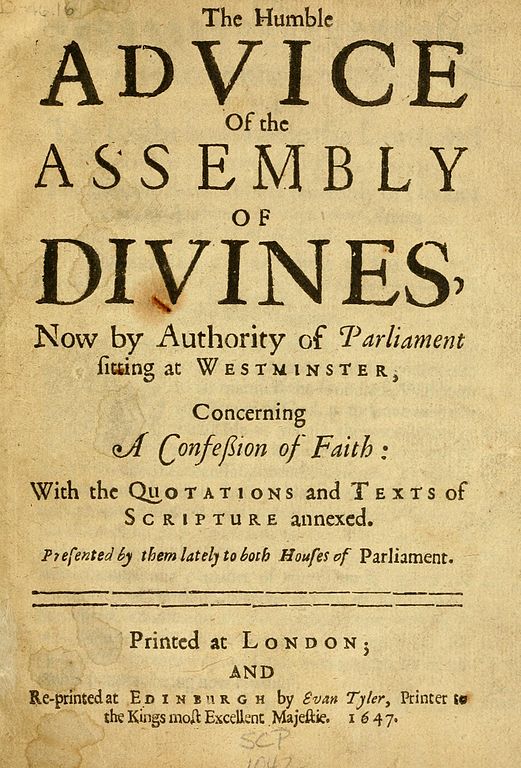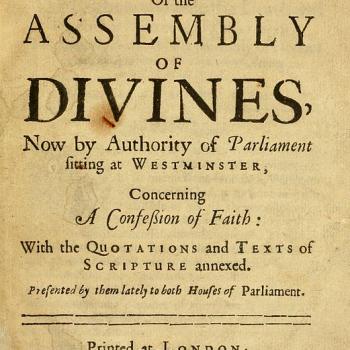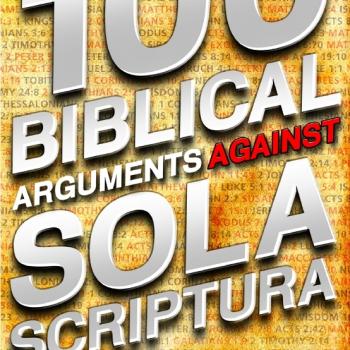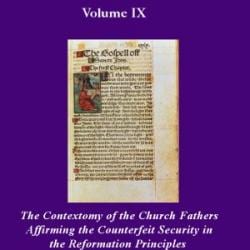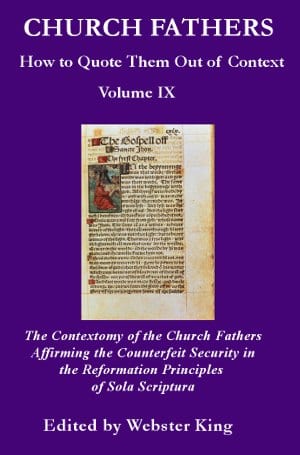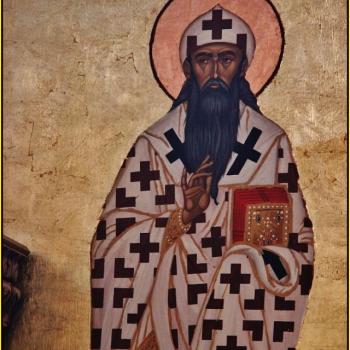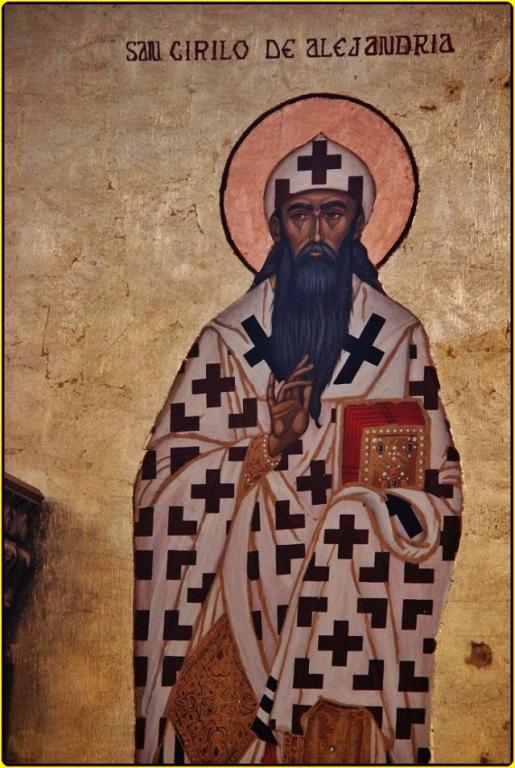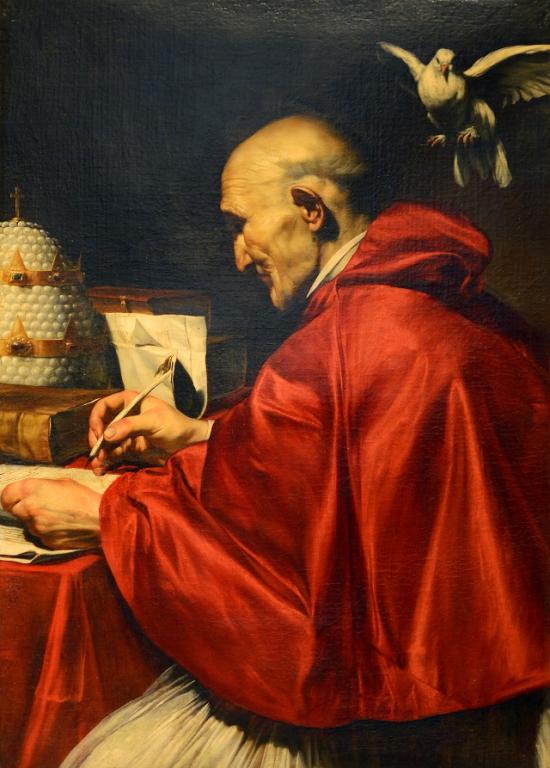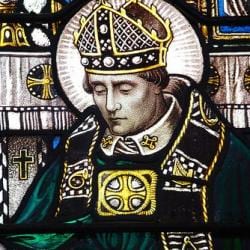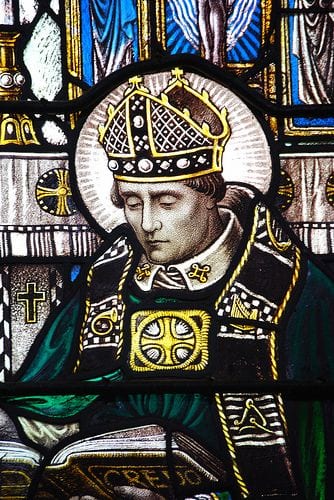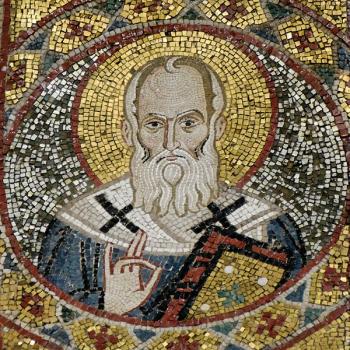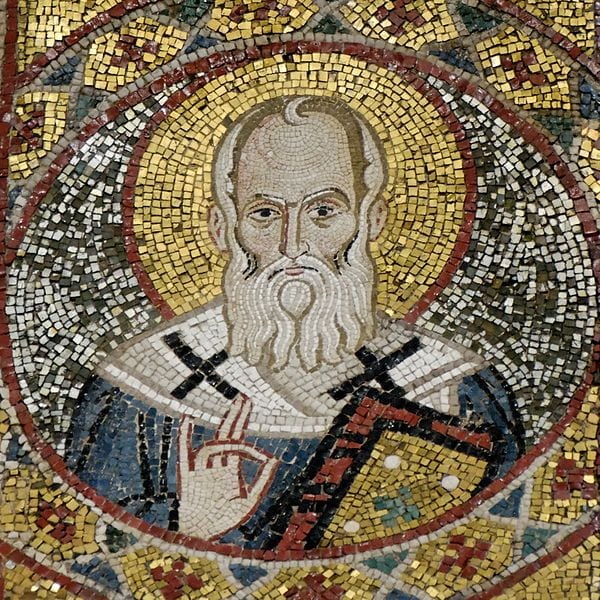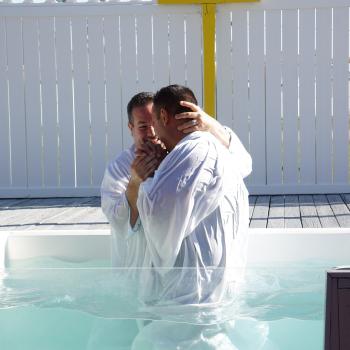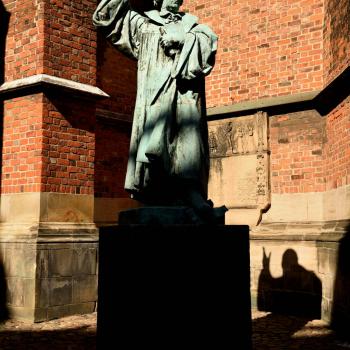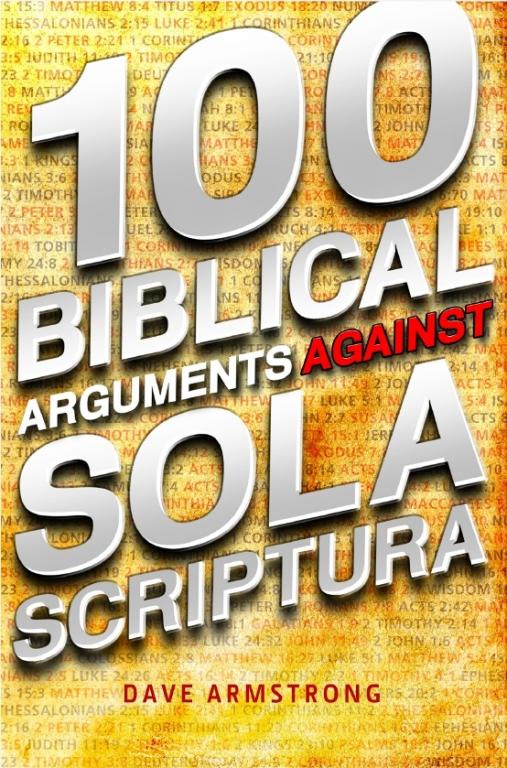
[see book and purchase information]
According to Wikipedia:
Greg L. Bahnsen (September 17, 1948 – December 11, 1995) was an American Calvinist philosopher, apologist, and debater. He was a minister in the Orthodox Presbyterian Church and a full-time Scholar in Residence for the Southern California Center for Christian Studies (SCCCS). He is also considered a contributor to the field of Christian apologetics, as he popularized the presuppositional method of Cornelius Van Til.
I am replying to an article, “Is Sola Scriptura a Protestant Concoction?: A Biblical Defense of Sola Scriptura“ by Dr. Bahnsen; transcribed by David T. King. I ran across it by perusing Bishop “Dr.” [???] James White’s blog. Dr. Bahnsen’s words will be in blue.
*****
The issue of Scripture and Scripture Alone (or what Protestants have come to call the principle of sola Scriptura) is a matter that divides professing Christians as to the foundation of their faith and what defines their faith. Back in the days of the Reformation when there were men who felt that the Gospel of the Lord Jesus Christ had been not only corrupted by the Roman Catholic Church, but had virtually disappeared under the mask of human traditions and rituals and things that kept people from actually hearing the good news of Jesus Christ, in order to reform the Church, in order to have the grace of God more clearly proclaimed to people, Protestants realized they had to take a stand not only for ‘Sola Gratia’ (i.e., in Latin, ‘By Grace Alone’ for our salvation), but that had to be proclaimed on the basis of sola Scriptura (‘Scripture Alone’) because the Roman Catholic Church used its appeal to human tradition in the Church (or what they considered divine tradition in the Church) as a basis for its most distinctive doctrines.
I can’t deal with every falsehood thrown out in this article (i.e., Catholics supposedly buried the gospel and denied grace alone), so I will stick to sola Scriptura. What is notable, right off the bat, is that Bahnsen never clearly defines even what he is defending (probably because he was “preaching to the choir” and assumed that they knew it). For a very clear definition of sola Scriptura from three Protestants who vigorously defend it (a definition I fully agree with), see: Definition of Sola Scriptura (Get it Right!).
When Martin Luther was called before the ‘Diet of Worms’ and there told that he had to recant his teaching about ‘Justification by Faith Alone’ (you may know the story very well), Luther (which was the better part of valor) asked for a night to think it over before he gave his answer to the Council. And then on the next day in appearing before that tribunal which was demanding that he recant of this teaching which really amounted to the purity of the Gospel, Luther responded with those famous words: “Here I stand, I can do no other!” Now what do we make of that? Is that just the stuff of which dramatic movies can be made? Or is there something about what Luther said that is crucial to what it is to be a Christian, crucial to the purity of the Gospel and the truth of the Scriptures themselves?
The backdrop to that scene (that I have written about) and the origin of sola Scriptura was a bit more complex. Luther had already proclaimed in the Leipzig Disputation of July 1519, a year and a half before the Diet of Worms (January to May 1521):
I assert that a council has sometimes erred and may sometimes err. Nor has a council authority to establish new articles of faith. . . . Councils have contradicted each other, . . . A simple layman armed with Scripture is to be believed above a pope or a council without it. . . . I say that neither the Church nor the pope can establish articles of faith. These must come from Scripture. For the sake of Scripture we should reject pope and councils.
But Luther in (always the vacillating and self-contradictory one), in 1532 virtually accepted the infallibility of apostolic Church tradition, writing with regard to the Real Presence of Christ in the Eucharist:
Moreover, this article has been unanimously believed and held from the beginning of the Christian Church to the present hour, as may be shown from the books and writings of the dear fathers, both in the Greek and Latin languages, — which testimony of the entire holy Christian Church ought to be sufficient for us, even if we had nothing more. For it is dangerous and dreadful to hear or believe anything against the unanimous testimony, faith, and doctrine of the entire holy Christian Church, as it has been held unanimously in all the world up to this year 1500. Whoever now doubts of this, he does just as much as if he believed in no Christian Church, and condemns not only the entire holy Christian Church as a damnable heresy, but Christ Himself, and all the Apostles and Prophets, who founded this article, when we say, ‘I believe in a holy Christian Church,’ to which Christ bears powerful testimony in Matt. 28.20: ‘Lo, I am with you alway, to the end of the world,’ and Paul, in 1 Tim. 3.15: ‘The Church is the pillar and ground of the truth.’ (Letter to Albrecht (or Albert), Margrave of Brandenburg and Duke of Prussia, dated April 1532 by some and February or early March by others; italics are Protestant historian Philip Schaff’s own; see further background and bibliographical information)
This gets us back to the question of the definition of sola Scriptura (that Bahnsen never clearly references). It refers to Scripture as the only infallible norm or final authority for Christians. Logically, then, if only Scripture is infallible, then the Church and councils and tradition are not infallible. Thus, Luther denied the infallibility of non-scriptural authority in 1519 and 1521, but contradictorily asserted it in 1532. Take your pick of which “Luther” you like best.
The response of Roman Catholics to Luther’s dramatic stand that he would not recant unless he could be shown to be wrong from the Bible…the response of Roman Catholics (for years) has been, “Well, Protestants simply have their ‘paper’ pope (the Bible)!”
That may be. For myself, I have documented how Luther had rejected 50 doctrines of received Catholic tradition by 1520: before the Diet of Worms even began. He was (overall) no “reformer” of what originally was; he was a radical and a revolutionary. As for the Bible being the standard of all things, that wasn’t the case — for Luther or anyone ever in the history of Christianity — in the case of the canon of the Bible (i.e., which books are included in it). The Bible never lists its own books; therefore the Church — interpreting existing tradition — had to declare which ones were canonical and inspired. This is only one of numerous undoubted internal contradictions of sola Scriptura.
Back when I was a seminary student, I had a student in my class who was very antagonistic to the conservatism and theology of the school where I was studying. And he used to make that point over and over again in debates with other students that “You Protestants simply have your paper pope; we have our ‘living’ pope; you have your ‘paper’ pope!”
Of course in saying that, it seemed to me that he was really demonstrating why it is Protestants have to hold out for sola Scriptura, because when he pits the ‘paper’ pope of the Bible against the ‘living’ pope who sits in Rome, what he is telling us is that finally that person who sits on the papal chair in Rome is more authoritative than the Bible itself!
That doesn’t follow at all. All it’s saying is that the pope is also infallible (though not inspired). His authority need not be in opposition to Scripture at all, but rather, in complete harmony with it, just as the canon (determined by the Church and tradition) is in harmony with the Bible. This unbiblical and logically unnecessary “either/or” mentality is altogether typical of Protestant thought.
And that’s exactly what Luther was concerned about. That’s what the Protestant Reformers were concerned about. And frankly, that’s what I’m concerned about tonight! Because we have in our day and age something of a mini-movement (it’s not big enough to be considered even a trickle), but a mini-movement of former Protestants going into the Roman Catholic communion. And they are being convinced that it’s an appropriate thing for them to do, and they are being told that the doctrine of sola Scriptura (the formative principle of theology presented in the Reformation, namely that the Bible alone is sufficient) is not itself authoritative, and in fact is not even itself taught in the Bible! “If sola Scriptura is so important,” they tell us, “then why isn’t it taught in the Bible alone? Why do Presbyterians prove their doctrine of sola Scriptura by going to the Westminster Confession of Faith, rather than to the Bible?” And so with rhetoric like this, they convince the minds (I think) of weak and unstable people that really Roman Catholicism is not that big a threat. After all, everybody has their traditions; we have to live with traditions as well as Scripture!
Indeed, it is not found in Scripture (not even indirectly or by deduction), which it must be in order to not be a viciously circular concept. And contrary concepts are found in many places in the Bible. I will demonstrate this and the illegitimacy and empty essence of the sola Scriptura and Dr. Bahnsen’s argumentation as we go along, just as I have in three books on the topic [one / two / three] and innumerable articles.
Well, what I’d like to do in our short time this evening is offer a defense of the Protestant doctrine of sola Scriptura. I’m not embarrassed by that doctrine. I believe it is absolutely necessary to the health of the Church, and I am convinced (as Luther was convinced) that if we give up sola Scriptura, we will inevitably give up sola Gratia as well. Because the giving up of the Protestant authority (the principle of sola Scriptura) simply opens the door for other ways of pleasing God to enter in that are not based upon His own revelation.
The canon of Scripture already is an example of that, which has existed (authoritatively) since the late 4th century. There are a host of Protestant concepts that are also not found in Scripture. I wrote way back in May 1995 about some of these:
The Bible doesn’t say a lot of things Protestants do now and accept as gospel truth. . . .
(Evangelical) Keith Green wrote a tract in 1981 in which he criticized elements that he thought were added to the gospel by Protestants, such as: the Altar call, sinner’s prayer, “1-2-3 steps to salvation” booklets (Campus Crusade), the “Poor Jesus” syndrome, bumper stickers, “Christian” slogans, and the “follow-up” program. I could add many more, e.g., mandatory tithing, fund-raising letters, “prayer cloths,” church buildings, public relations schemes, numerical church growth (over against individual spiritual growth), the biblical Canon, denominations, tongues for every believer, congregational government, “self-help” Christian psychology, the word “Trinity,” missionary and TV evangelist pleas for financial support, “accepting Jesus as your personal Savior,” sola Scriptura, and evangelistic tracts.
And it’s a very short step from thinking that I can follow a religious tradition that cannot be verified objectively by the Word of God to the idea that I can please God by something that He has not provided. It is a very short step from the denial of sola Scriptura to the denial of sola Gratia when it comes to salvation.
And it’s a very short step from sola Scriptura to accepting sola fide (faith alone), which (like sola Scriptura) is also utterly absent from Holy Scripture; whereas sola gratia (grace alone) is biblical, which is why Catholics fully agree with Protestants about that.
So I will try to keep you up to date on where I am in presenting this case, and I am going to begin by asking: What does the Bible itself tell us about the authority for our doctrinal convictions? When two people who profess to be Christians disagree with each other over some premise or dogma, how does the Bible tell us these disagreements should be adjudicated?
Well, the Bible records one such huge disagreement in the early Church, regarding the necessity of circumcision or not, for Gentile Christians (Acts 15:1-5). As a result, a council was called at Jerusalem (Acts 15:6), which included St. Peter, St. Paul, St. James, and other apostles and early Church leaders (“elders”). The men in this council claimed to be led directly by the Holy Spirit (“it has seemed good to the Holy Spirit and to us”: 15:28, RSV [as throughout]) and issued a binding decree so authoritative that St. Paul went around to various cities proclaiming it (“As they went on their way through the cities, they delivered to them for observance the decisions which had been reached by the apostles and elders who were at Jerusalem”: 16:4).
That is infallible conciliar authority: expressly contradictory to sola Scriptura, which denies that anything other than Scripture is finally authoritative or binding upon the entire mass of Christians.
Secondly, St. Paul in his letters refers in a multitude of ways to Church authority and tradition, rather than some “rule of faith” of always consulting the Bible alone. He states, for example:
2 Thessalonians 2:15 So then, brethren, stand firm and hold to the traditions which you were taught by us, either by word of mouth or by letter.
Paul constantly asserts and presupposes a received tradition, which he calls by that name (in the above passage and 1 Corinthians 11:2 and 2 Thessalonians 3:6) and by synonymous words such as “the faith”, “the truth”, “the commandment”, “the doctrine”, “the teaching”, “the message” and “the gospel.” This body of existing teaching or tradition is “delivered” and “received” (apostolic succession) and anyone who dissents against it is outside the fold (Paul urges separation from them in obstinate cases). All of this is far more consistent with the Catholic rule of faith than Protestant sola Scriptura.
Thirdly, the Ethiopian eunuch was reading Isaiah and Philip didn’t assume that simply reading it was sufficient to “solve any problem.” When he heard him reading, he asked, “Do you understand what you are reading?” (Acts 8:30). Even the eunuch comprehended that the Bible needed authoritative interpretation, since he replied: “How can I, unless some one guides me?” (8:31). It turned out to be a messianic passage about Jesus (Isaiah 53), which the eunuch inquired about (8:34) and Philip explained (8:35), sharing the gospel in the process. That’s not “Bible alone“. It’s Bible with authoritative interpretation: precisely as in Catholicism. And it’s completely consistent with Old Testament practice of authoritative teaching and interpretation from the Levites and others.
Fourthly, St. Peter notes that some difficult passages in St. Paul are twisted:
2 Peter 3:16 . . . There are some things in them hard to understand, which the ignorant and unstable twist to their own destruction, as they do the other scriptures.
He is obviously assuming the need for authoritative interpretation, to avoid such eventualities. The prophet Hosea in the 8th century BC lamented such things: “My people are destroyed for lack of knowledge” (Hosea 4:6). Some things never change.
I. And the first step, which I hope is an obvious one but becomes crucial as we move ahead, the first step is for us to recognize that the Bible teaches that our convictions are not to be based upon human wisdom! Human wisdom isn’t always wrong; sometimes people used their intellect and their independent ability to research, and find facts and come to truths which are very valuable. The problem is not that human wisdom is always wrong. The problem is that human wisdom is (1) fallible, and (2) not a sufficient foundation for believing anything about God. Because only God is adequate to witness to Himself!
If this were the case, how could the early Christians meet in Jerusalem and decide that circumcision was no longer required for Gentile Christians? Were they fallible? There was not a single verse in the existing Scripture (Old Testament at that time) that would indicate such a thing. Even Paul had Timothy circumcised (Acts 16:3), at the same time he was preaching against its necessity. How could Philip help the Ethiopian eunuch understand Scripture, being merely human? How could the Levites in the Old Testament do the same thing? Dr. Bahnsen himself is doing this in this very talk. Why accept his word? He’s interpreting the Bible a certain way (wrongly, as it were). Thus he contradicts himself as well as the Bible. Everyone has interpretation and tradition of some sort. The only question is “which one?”
Therefore our doctrinal convictions are not (should not) based upon human wisdom. The Christian faith is rather based upon God’s own self-revelation rather than the conflicting opinions of men or the untrustworthy speculations of men.
You mean, like denominations?
Therefore our doctrinal convictions are not (should not) based upon human wisdom. The Christian faith is rather based upon God’s own self-revelation rather than the conflicting opinions of men or the untrustworthy speculations of men. If you have your Bibles with you tonight, turn to I Corinthians 2:5, and notice the burden of the Apostle Paul as to how to control the beliefs of the Christians there in Corinth. I Corinthians 2:5, in verse 4 he says, “And my speech and my preaching were not in persuasive words of wisdom, but in demonstration of the Spirit and of power…” Why?… Why is Paul making that point? Why is this necessary to emphasize? Verse 5: “…that your faith should not stand in the wisdom of men, but in the power of God.” (ASV)
Yes: accept God’s inspired revelation, but also accept authoritative interpretation of it, which Paul was providing at that time before anyone knew he was actually writing Scripture, too. After all, he said it was “my speech and my preaching”. It was also his in the same way that he wrote elsewhere:
1 Corinthians 15:10 But by the grace of God I am what I am, and his grace toward me was not in vain. On the contrary, I worked harder than any of them, though it was not I, but the grace of God which is with me.
1 Corinthians 3:9-10 For we are God’s fellow workers; you are God’s field, God’s building. [10] According to the grace of God which was given to me, like a wise master builder I laid a foundation, and another is building on it. But each man must be careful how he builds on it.
Philippians 2:12-13 Therefore, my beloved, as you have always obeyed, so now, not only as in my presence but much more in my absence, work out your own salvation with fear and trembling; for God is at work in you, both to will and to work for his good pleasure.
Mark 16:20 And they went forth and preached everywhere, while the Lord worked with them . . .
It’s all by God’s grace; we decide in our free will (enabled by His grace) to participate or cooperate with God and His plan or not. The Calvinist draws an unbiblical dichotomy between our works and the works of God in us.
Think about Paul’s conceptual scheme here as you read this verse. Notice how he puts the power of God over here on one side, and the wisdom of men on the other. And not only is the power of God and the wisdom of men in two different categories, he said, “Your faith should not stand in the wisdom of men.” In I Corinthians 2, verses 10 and 13 (you’ll notice while you’re right there) that Paul draws a sharp contrast between the words which man’s wisdom teaches and those which God reveals unto us through the Spirit. On the one hand, you have words taught by the wisdom of men, and on the other hand you have words revealed through the Spirit. Those are contrasted in Paul’s theology. And he makes the point in verse 4 of chapter 2 that the apostolic message did not originate in words of human wisdom or insight; but rather the apostolic message rests in the power of God and comes through the wisdom of God’s own Spirit!
There is a sense in which that is true, but also a sense in which God and man work together in harmony and synergy, as in my passages above. Dr. Bahnsen deliberately ignores those passages.
The Bible would have us beware of the uninspired words of men. God’s people must not submit to the uninspired words of men. Jeremiah 23:16, the prophet says, “Thus saith Jehovah of hosts, Hearken not unto the words of the prophets that prophesy unto you: they teach you vanity; they speak a vision of their own heart, and not out of the mouth of Jehovah.” (ASV) There again we see in the Old Testament this contrast between a message that comes out of the heart of a man and that which comes from the mouth of Jehovah!
Yes, because Jeremiah was referring to the false prophets. It’s not a matter of “inspired vs. uninspired” but true vs. false messages. Jeremiah preached for sixty years (and with no “success” at all). Not all of his preaching was inspired and/or later recorded in Scripture. He would have preached at a bare minimum as much text as the length of a hundred Bibles. All of his preaching was infallible and true, but not all inspired. Therefore, the existence of a prophet like Jeremiah is proof that authoritative, non-scriptural traditions do in fact exist. The same applies to the Apostle Paul. One long teaching from him on one evening would contain many more words than all his epistles put together and they were just as authoritative as the words that made it into the New Testament. His words didn’t have to wait to get into the Bible to be authoritative (the false Protestant notion of “inscripturation”).
It’s not as though the heart of man can’t ever speak the truth; it’s not as though human wisdom never gets anything right, but God’s people cannot rest secure in anything that does not come from the mouth of Jehovah Himself.
That’s simply not true as a blanket statement. The canon of the Bible immediately contradicts it.
In the New Testament, in Colossians 2 and verse 8, Paul warns God’s people not to allow their faith to be compromised by any philosophy which he says is “after the tradition of men… and not after Christ!” There you have it again, the contrast between man’s authority and Christ’s authority, the tradition of men on the one hand, and the authority of Christ on the other.
This is the contrast between good and bad traditions. It’s not condemning all tradition whatever. See my paper: “Tradition” Isn’t a Dirty Word [late 90s; rev. 8-16-16].
The Father and Jesus Christ revealed the Word to Apostles — and they are taught by the Holy Spirit (as John 14:26 tells us) that Jesus would give the Spirit to lead them into all truth and remind them what He had taught. And the Bible tells us it’s in virtue of this revelatory work of the Apostles — as they reveal the Father and the Son in the power of the Spirit — it’s in virtue of this revelatory work that Christ builds His Church upon the foundation of the Apostles.
It’s not just the apostles. The Holy Spirit led the men at the council of Jerusalem, who were not all apostles; it included also plain “elders” (Acts 15:6; 16:4) who participated in the decision process (precisely as in ecumenical councils): 15:22-23.
And now this teaching of the Apostles was received as a body of truth which was a criteria for doctrine and for life in the Church of Jesus Christ. The teaching of the Apostles was received as a body of truth that was the standard for doctrine and for life. To make my point here, let me just refer to what the Apostles had as the truth. Now this truth comes from God (we’ve already seen that it’s a revelation of the Father and the Son and the power of the Spirit) — this truth from God (I’m saying) was the standard for doctrine and life in the early days of the Church.
I don’t think anyone has any problem with that, at this point. But the question is: how did the Church come to know this Truth? How did the Church, in its earliest days, learn of the apostolic truth from God? How did they come into contact with this body of dogma that the Apostles had every right and authority to communicate to God’s people? Well, we know that the body of truth was ‘passed down’ to the Church and through the Church. And because it was ‘passed down’ from the Apostles, it was often called “that which was delivered” or “the deposit”.
See, the truth gets ‘passed down’ to the Church! And because it’s “passed down” or “handed over” — the Greek word paradosis is used which means “to hand over” — it can be translated “the deposit,” “that which is given by hand,” that which is communicated from one person to another. And that is translated into English often as “the tradition,” that which is entrusted, that which is deposited, that which is delivered. Or as I’ve said, handed over or committed to another, the tradition. The Apostles have the truth from God and they hand it over to the Church. They deliver it to the Church. And that comes to be called the ‘tradition’! The ‘tradition’ is just the truth that the Apostles teach as a revelation from God the Father, Son and Holy Spirit.
This apostolic deposit extended beyond just Scripture. Neither Dr. Bahnsen nor anyone else can prove that it did not. St. Paul presupposes this in how he talks about this received teaching. He scarcely even mentions Scripture when doing so.
Now what does the New Testament tell us about this ‘tradition’? Let’s look at a few verses together here for a few moments. Turn in your Bibles please to II Timothy 1:13 and 14. II Timothy 1:13, Paul says, “Hold the pattern of sound words which thou hast heard from me, in faith and love which is in Christ Jesus. That good thing which was committed unto thee guard through the Holy Spirit which dwelleth in us.” (ASV) Here Paul speaks of the ‘deposit’ — that which has been committed unto him — the ‘deposit’ that he has received, he passes on and he says is to be guarded! The Apostolic ‘deposit’ then is the pattern of sound words for the Church. Notice that? “Hold the pattern of sound words which you have heard from me, in faith and love which is in Christ Jesus. That good thing which was committed unto thee” — that ‘deposit’, that ‘pattern of sound words’ that is the system of doctrine (‘pattern of sound words’), that system or network of healthy truth and teaching, the ‘pattern of sound words’, is the Apostolic deposit.
In I Timothy 6:20-21, we learn that this is to be guarded: “O Timothy, guard that which is committed unto thee, turning away from the profane babblings and oppositions of the knowledge which is falsely so called; which some professing have erred concerning the faith.” (ASV) The pattern of sound words, the deposit of the Apostles, is to be guarded. People put their faith in jeopardy when they do not! Timothy is warned by Paul that some people professing to know the truth have erred concerning the faith because they haven’t guarded the Apostolic deposit.
Indeed, the Apostolic deposit, “the pattern of sound words,” passed to the Church by the Apostles was the standard for Christian life — look at II Thessalonians 3:6 — “Now we command you, brethren, in the name of our Lord Jesus Christ, that ye withdraw yourselves from every brother that walketh disorderly, and not after the tradition which they received of us.” (ASV) Here the English word ‘tradition’ is used — “that which was delivered from us and you received” — if any brother departs from that, then you’re to withdraw yourselves from him! That is the standard for Christian living: “the pattern of sound words” delivered by the Apostles to the Church and received by the Church.
Look at II Peter 2:21, “For it were better for them not to have known the way of righteousness, than, after knowing it, to turn back from the holy commandment delivered unto them.” To turn away from that which has been delivered by the Apostles is a horrible thing to do! It’d be better that you never knew the truth than you should reject it after the Apostolic deposit has been received.
And moreover this ‘pattern of sound words’ which is to be guarded as the standard for Christian living is to be the standard for all future teaching in the Church — II Timothy 2:2, “And the things which thou hast heard from me among many witnesses, the same commit thou to faithful men, who shall be able to teach others also.” The Apostles have a truth (a body of truth, a ‘pattern of sound words’) received from the Father, Son and Holy Spirit — they pass it on to the Church. And the Church is to guard that Apostolic pattern of sound words — they are to mark off as heretics those who depart from it! They are to use that as the standard for all future teachers in the Church.
This is all true, and he is arguing precisely as Catholics argue about the apostolic deposit or tradition. He’s going to have to appeal to “inscripturation” eventually, in order to differentiate the Protestant view (I am answering as I read, so this is in effect, my prediction of where he is headed). But this is precisely what he can’t consistently do, because the Bible never states it. Therefore, by his own criterion, “inscripturation” is merely an undocumented tradition of men and carries no particular authority at all. It’s an unproven Protestant “tradition of men.”
What is this tradition? Is it the holy tradition of the Eastern Orthodox Church? Is it the tradition of the popes in the Roman Catholic Church? No, it is the Apostolic tradition that truth which they have received from the Father, Son, and Holy Spirit! Can you not see that? It should be obvious in the reading of Scripture unless you go to the Bible trying to make it prove some preconceived idea! That tradition, the deposit, that which is handed over or delivered is not Church tradition, papal tradition — it’s rather the pattern of sound words taught by the Apostles. And they teach that on the basis of revelation from God the Father.
The Bible never dichotomizes this tradition / deposit over against the Church or popes as the human leaders of same. Peter, as the prototype pope and first pope, exhibits all kinds of leadership. Peter alone among the apostles is mentioned by name as having been prayed for by Jesus Christ in order that his “faith may not fail” (Lk 22:32). Peter alone among the apostles (not the collective) is exhorted by Jesus to “strengthen your brethren” (Lk 22:32). His two epistles are written to the Church at large, like papal encyclicals (see 1 Pet 1:1; 2 Pet 1:1), and partially to elders and bishops (1 Pet 5:1-4) rather than to individuals or single congregations, like Paul’s letters.
Paul places the custodianship of the apostolic deposit squarely on the Church:
1 Timothy 3:15 . . . the household of God, which is the church of the living God, the pillar and bulwark of the truth.
I wrote about the clear logical and ecclesiological implications of this in my book, 100 Biblical Arguments Against Sola Scriptura (2012, pp. 104-107, #82):
Pillars and foundations support things and prevent them from collapsing. To be a “bulwark” of the truth, means to be a “safety net” against truth turning into falsity. If the Church could err, it could not be what Scripture says it is. God’s truth would be the house built on a foundation of sand in Jesus’ parable. For this passage of Scripture to be true, the Church could not err — it must be infallible. A similar passage may cast further light on 1 Timothy 3:15:
Ephesians 2:19-21 . . . you are fellow citizens with the saints and members of the household of God, [20] built upon the foundation of the apostles and prophets, Christ Jesus himself being the cornerstone, [21] in whom the whole structure is joined together and grows into a holy temple in the Lord;
1 Timothy 3:15 defines “household of God” as “the church of the living God.” Therefore, we know that Ephesians 2:19-21 is also referring to the Church, even though that word is not present. Here the Church’s own “foundation” is “the apostles and prophets, Christ Jesus himself being the cornerstone.” The foundation of the Church itself is Jesus and apostles and prophets.
Prophets spoke “in the name of the Lord” (1 Chron 21:19; 2 Chron 33:18; Jer 26:9), and commonly introduced their utterances with “thus says the Lord” (Is 10:24; Jer 4:3; 26:4; Ezek 13:8; Amos 3:11-12; and many more). They spoke the “word of the Lord” (Is 1:10; 38:4; Jer 1:2; 13:3, 8; 14:1; Ezek 13:1-2; Hos 1:1; Joel 1:1; Jon 1:1; Mic 1:1, et cetera). These communications cannot contain any untruths insofar as they truly originate from God, with the prophet serving as a spokesman or intermediary of God (Jer 2:2; 26:8; Ezek 11:5; Zech 1:6; and many more). Likewise, apostles proclaimed truth unmixed with error (1 Cor 2:7-13; 1 Tim 2:7; 2 Tim 1:11-14; 2 Pet 1:12-21).
Does this foundation have any faults or cracks? Since Jesus is the cornerstone, he can hardly be a faulty foundation. Neither can the apostles or prophets err when teaching the inspired gospel message or proclaiming God’s word. In the way that apostles and prophets are infallible, so is the Church set up by our Lord Jesus Christ. We ourselves (all Christians) are incorporated into the Church (following the metaphor), on top of the foundation.
1 Peter 2:4-9 Come to him, to that living stone, rejected by men but in God’s sight chosen and precious; [5] and like living stones be yourselves built into a spiritual house, to be a holy priesthood, to offer spiritual sacrifices acceptable to God through Jesus Christ. [6] For it stands in scripture: “Behold, I am laying in Zion a stone, a cornerstone chosen and precious, and he who believes in him will not be put to shame.” [7] To you therefore who believe, he is precious, but for those who do not believe, “The very stone which the builders rejected has become the head of the corner,” [8] and “A stone that will make men stumble, a rock that will make them fall”; for they stumble because they disobey the word, as they were destined to do. [9] But you are a chosen race, a royal priesthood, a holy nation, God’s own people, that you may declare the wonderful deeds of him who called you out of darkness into his marvelous light. (cf. Isa 28:16)
Jesus is without fault or untruth, and he is the cornerstone of the Church. The Church is also more than once even identified with Jesus himself, by being called his “Body” (Acts 9:5 cf. with 22:4 and 26:11; 1 Cor 12:27; Eph 1:22-23; 4:12; 5:23, 30; Col 1:24). That the Church is so intimately connected with Jesus, who is infallible, is itself a strong argument that the Church is also infallible and without error.
Therefore, the Church is built on the foundation of Jesus (perfect in all knowledge), and the prophets and apostles (who spoke infallible truth, often recorded in inspired, infallible Scripture). Moreover, it is the very “Body of Christ.” It stands to reason that the Church herself is infallible, by the same token. In the Bible, nowhere is truth presented as anything less than pure truth, unmixed with error. That was certainly how Paul conceived his own “tradition” that he received and passed down.
Knowing what truth is, how can its own foundation or pillar be something less than total truth (since truth itself contains no falsehoods, untruths, lies, or errors)? It cannot. It is impossible. It is a straightforward matter of logic and plain observation. A stream cannot rise above its source. What is built upon a foundation cannot be greater than the foundation. If it were, the whole structure would collapse.
If an elephant stood on the shoulders of a man as its foundation, that foundation would collapse. The base of a skyscraper has to hold the weight above it. The foundations of a suspension bridge over a river have to be strong enough to support that bridge.
Therefore, we must conclude that if the Church is the foundation of truth, the Church must be infallible, since truth is infallible, and the foundation cannot be lesser than that which is built upon it. And since there is another infallible authority apart from Scripture, sola scriptura must be false.
Now, we have to ask the next question. We know what the truth is (it’s the deposit). We know why it’s called tradition (because it’s ‘passed on’ to the Church and through the Church). Now the question is: how was it passed? In what form was it passed to the Church? And to answer that let’s turn in our Bibles to II Thessalonians 2:15. Paul says, “So then, brethren, stand fast, and hold the traditions which ye were taught, whether by word, or by epistle of ours.” Paul says, “Stand fast in the traditions,” that is, what the Apostles have delivered, handed over to the Church! Stand fast by that pattern of sound words, the truth, the deposit that they have from God to give to God’s people. Stand fast by it! And how did the Church learn about this deposit? How did the Apostles hand it over or deliver it? Well, Paul tells us right here. They did it not only by word but by epistle, by letter, by writing (if you will). “So then, brethren, stand fast, and hold the traditions which ye were taught, whether by word, or by epistle of ours.”
And so what I want to say is the truth was passed to the Church orally and in writing. In two ways that same deposit (or pattern of sound words) came to the Church. Is there any hint at all in this verse that what Paul means is part of the tradition came orally and part of the tradition came in writing — so make sure you keep the two of them together so you get everything? Is there any hint of that? It’s just the traditions; it’s just the deposit; it’s just the pattern of sound words that is communicated in two different ways! Paul doesn’t suggest that one or the other supplement the opposite. He simply says guard the traditions — and you received them in writing and you received them orally!
Now why am I stressing this point? Because, you see, Roman Catholics maintain that if you only keep to the Written Apostolic Tradition, you haven’t got the whole Word of God! You’ve got to have the Oral Apostolic Tradition as well. Well, there’s just a huge logical fallacy involved in that thinking! Because Paul doesn’t say, “Make sure you hold on to the oral traditions and to the written traditions,” does he? He says, “Hold fast to the traditions whether you heard them orally or in writing.” Can you see the difference there? Do you have one thing that comes to the Church in two ways? Or do you have two things that come to the Church?
I see no essential difference. I think Dr. Bahnsen is trying to create a difference with no distinction at all. He’s just seeing what he wants to see: “oral” or “by mouth” or “heard” and “written” are there together, with no distinction made. And there is much about authoritative written and oral tradition in the Bible: including going back to Moses on Mt. Sinai:
“Moses’ Seat” & Jesus vs. Sola Scriptura (vs. James White) [12-27-03]
Binding, Authoritative Tradition According to St. Paul [2004]
James White’s Critique of My Book, The Catholic Verses: Part I: The Binding Authority of Tradition [12-30-04]
Refutation of James White: Moses’ Seat, the Bible, and Tradition (Introduction: #1) (+Part II | Part III | Part IV | Part V | Part VI) [5-12-05]
Biblical Evidence for Apostolic Oral Tradition [2-20-09]
25 Brief Arguments for Binding Catholic Tradition [2009]
Tradition, Succession, Apostolic Deposit (vs. Calvin #25) [7-1-09]
Tradition, Church, & the Rule of Faith (vs. Calvin #27) [7-6-09]
Bible on Submission to Church & Apostolic Tradition + Biblical Condemnation of the Rebellious & Schismatic Aspects of the Protestant Revolt [8-27-11]
Biblical Evidence for the Oral Torah [10-18-11]
Dialogue on Oral Tradition & Apostolic Succession (vs. John E. Taylor) [5-17-17]
The Bereans and Searching the Scriptures: Sola Scriptura? [National Catholic Register, 5-5-19]
Anglican Newman on Oral & Written Apostolic Tradition [10-12-19]
Vs. James White #14: Word of God / the Lord Usually Oral (+ White’s Own Erroneous Definition of Sola Scriptura in 1990 (at the same time I got it right) [11-18-19]
Jesus the “Nazarene”: Did Matthew Make Up a “Prophecy”? (Reply to Jonathan M. S. Pearce from the Blog, A Tippling Philosopher / Oral Traditions and Possible Lost Old Testament Books Referred to in the Bible) [12-17-20]
Oral Tradition: More Biblical (Pauline) Evidence (. . . and an Examination of the False and Unbiblical Protestant Supposed Refutation of “Inscripturation”) [2-27-21]
If I might schematize the two different positions here, and what I have been arguing is that Paul says the Apostolic traditions are the pattern of sound words that govern the Church. And the Church, in that day, learned of them both orally and in writing, because there’s no suggestion when Paul says that there’s an oral aspect to the teaching and a written aspect, and you’ve got to make sure you keep the two together. And I’m emphasizing this because this is the favorite verse of contemporary Roman Catholic apologists where they try to prove that God’s people today must have oral tradition as well, because it says right here that you’re to hold fast to those traditions whether by word or epistle of ours.
And the answer to that, first of all, is that if you have it in either form you’ve got the ‘pattern of sound words’. But more than that, why is it that the truth could be passed through the Church orally and that would be binding on the Church? It’s because the one who was speaking this word had Apostolic authority! Remember Jesus said, “He who receives you receives Me!” So when the Apostles went to various congregations and taught, that was to be received as the very Word of Jesus Christ Himself. When the Apostles speak the Word of Christ, then that binds the Church.
Now he’s starting to depart from the biblical teaching and descending into mere arbitrary Protestant non-biblical tradition. But “hear him out” so you can fully understand how Protestantism is utterly unbiblical when we get down to brass tacks and see how a Protestant teacher explains his unbiblical allegiance to sola Scriptura. We must fully understand the process in order to effectively refute it: from the Bible!
Now when contemporary Roman Catholic apologists look at II Thessalonians 2:15 and say, “We’re bound to follow the traditions, oral as well as written,” my response to that is not only are oral and written two different ways of saying the same thing; but my response to that is simply, I’m under obligation to listen to the oral teaching of the Apostles; you’re absolutely right, and they’re not around any more! And you know, catch up with what’s happening in the Church, friend — we don’t have Apostles today! Where do you get the idea — even on your misreading of this verse — where do you get the idea that the authority of the Apostles in oral instruction has passed on to other people?
Apostolic succession is taught here:
Acts 1:16-26 “Brethren, the scripture had to be fulfilled, which the Holy Spirit spoke beforehand by the mouth of David, concerning Judas who was guide to those who arrested Jesus. [17] For he was numbered among us, and was allotted his share in this ministry. [18] (Now this man bought a field with the reward of his wickedness; and falling headlong he burst open in the middle and all his bowels gushed out. [19] And it became known to all the inhabitants of Jerusalem, so that the field was called in their language Akel’dama, that is, Field of Blood.) [20] For it is written in the book of Psalms, `Let his habitation become desolate, and let there be no one to live in it’; and `His office let another take.’ [21] So one of the men who have accompanied us during all the time that the Lord Jesus went in and out among us, [22] beginning from the baptism of John until the day when he was taken up from us — one of these men must become with us a witness to his resurrection.” [23] And they put forward two, Joseph called Barsab’bas, who was surnamed Justus, and Matthi’as. [24] And they prayed and said, “Lord, who knowest the hearts of all men, show which one of these two thou hast chosen [25] to take the place in this ministry and apostleship from which Judas turned aside, to go to his own place.” [26] And they cast lots for them, and the lot fell on Matthi’as; and he was enrolled with the eleven apostles.
Acts 1:20 even uses episkopos (“bishop” / “office” in RSV; “bishoprick” in KJV) to describe Judas, who was succeeded by Matthias. This is where Catholics derive the idea that the bishops are the successors of the apostles. Since Paul received and passed on or delivered oral and written tradition, successors to the apostles would do the same thing.
The Bible actually teaches that the apostles didn’t cease. But Catholics interpret this as teaching that they continue in the person of the bishops (Acts 1:16-26). Paul shows no sense of the cessation of apostles in these passages:
1 Corinthians 12:28-29 And God has appointed in the church first apostles, second prophets, third teachers, then workers of miracles, then healers, helpers, administrators, speakers in various kinds of tongues. [29] Are all apostles? Are all prophets? Are all teachers? Do all work miracles?
Ephesians 4:11-12 And his gifts were that some should be apostles, some prophets, some evangelists, some pastors and teachers, [12] to equip the saints for the work of ministry, for building up the body of Christ,
Note how “prophets” are also included in both passages, alongside “apostles” and in the same list with categories like teachers, administrators, tongues-speakers, helpers, evangelists, and pastors. If all those offices haven’t ceased, why would we think the office of apostles would? The New Testament continues to refer to existing prophets:
Acts 11:27-30 Now in these days prophets came down from Jerusalem to Antioch. [28] And one of them named Ag’abus stood up and foretold by the Spirit that there would be a great famine over all the world; and this took place in the days of Claudius. [29] And the disciples determined, every one according to his ability, to send relief to the brethren who lived in Judea; [30] and they did so, sending it to the elders by the hand of Barnabas and Saul.
Acts 21:10-11 While we were staying for some days, a prophet named Ag’abus came down from Judea. [11] And coming to us he took Paul’s girdle and bound his own feet and hands, and said, “Thus says the Holy Spirit, `So shall the Jews at Jerusalem bind the man who owns this girdle and deliver him into the hands of the Gentiles.'”
The authority of this prophet Agabus (backed up by “the Spirit”) was so acknowledged, that (in Acts 11) “the disciples” accepted it, as did Paul and Barnabas: through whom relief was sent, following the prophet’s prediction of famine. This was not Holy Scripture. It’s an oral proclamation from a prophet, led by the Holy Spirit, which was accepted and acted upon. And this is after the Church had begun at Pentecost. He then prophesied to St. Paul himself, saying, “Thus says the Holy Spirit” and Paul fully accepts it. This is, again, non-biblical and non-apostolic (and oral, not written) infallibility: utterly contrary to sola Scriptura.
Acts 13:1 Now in the church at Antioch there were prophets and teachers, Barnabas, Simeon who was called Niger, Lucius of Cyre’ne, Man’a-en a member of the court of Herod the tetrarch, and Saul.
Acts 15:32 And Judas and Silas, who were themselves prophets, exhorted the brethren with many words and strengthened them. (cf. Lk 2:36)
Paul matter-of-factly refers to the continuing existence of “prophetic powers” (1 Cor 13:2), and even “revelation” in the following passage (and related ones noted at the end), which has frequent reference to prophets, prophecies, and prophesying:
1 Corinthians 14:26, 29-32, 37, 39 What then, brethren? When you come together, each one has a hymn, a lesson, a revelation, a tongue, or an interpretation. Let all things be done for edification. . . . [29] Let two or three prophets speak, and let the others weigh what is said. [30] If a revelation is made to another sitting by, let the first be silent. [31] For you can all prophesy one by one, so that all may learn and all be encouraged; [32] and the spirits of prophets are subject to prophets. . . . [37] If any one thinks that he is a prophet, or spiritual, he should acknowledge that what I am writing to you is a command of the Lord. . . . [39] So, my brethren, earnestly desire to prophesy, and do not forbid speaking in tongues; (cf. 14:1, 3-5, 24; 1 Thess 5:20
And there are several others as well:
Ephesians 3:4-5 When you read this you can perceive my insight into the mystery of Christ, [5] which was not made known to the sons of men in other generations as it has now been revealed to his holy apostles and prophets by the Spirit;
1 Timothy 1:18 This charge I commit to you, Timothy, my son, in accordance with the prophetic utterances which pointed to you, that inspired by them you may wage the good warfare,
1 Timothy 4:14 Do not neglect the gift you have, which was given you by prophetic utterance when the council of elders laid their hands upon you.
Revelation 11:3, 6, 10 And I will grant my two witnesses power to prophesy for one thousand two hundred and sixty days, clothed in sackcloth.” . . . [6] They have power to shut the sky, that no rain may fall during the days of their prophesying, and they have power over the waters to turn them into blood, and to smite the earth with every plague, as often as they desire. . . . [10] . . . these two prophets had been a torment to those who dwell on the earth. (cf. 10:11)
Acts 19:6 And when Paul had laid his hands upon them, the Holy Spirit came on them; and they spoke with tongues and prophesied.
Acts 21:9 And he had four unmarried daughters, who prophesied.
1 Corinthians 11:4-5 Any man who prays or prophesies with his head covered dishonors his head, [5] but any woman who prays or prophesies with her head unveiled dishonors her head — it is the same as if her head were shaven.
That’s a lot of profound non-apostolic compelling authority to completely overlook in Holy Scripture, isn’t it? And by an educated Bible scholar at that . . .
Well of course, those of you familiar with the Roman Catholic Church know that they have something of an answer to that. However, I’ve never known a Roman Catholic to think that their answer to that question was based on biblical exegesis. They believe that the tradition of the Apostles (or the authority of the Apostles) can be passed through the office, particularly, of the vicar of Christ on earth, the pope, and the pope has been ordained by previous popes ordained by previous popes, the vicar of Christ, the deputy of Christ on earth. The problem is, that’s not biblically founded! And that’s the closest they would to being able to show that the authority of the Apostles continues in the Church.
My argument above was completely biblical in nature. And I’d guess that Dr. Bahnsen never saw anything like it (and he was likely a cessationist as regards the charismatic gifts: which is another quite unbiblical notion). Papal succession is largely a logical argument, but directly based on biblical arguments and analogies:
Petrine & Roman Primacy & Papal Succession (vs. Calvin #14) [6-13-09]
Papal Succession & the Bible: An Exchange [1-27-12]
The Biblical Argument for Papal Succession [12-12-15]
Papal Succession: A Straightforward Biblical Argument [4-28-17]
Here are further biblical arguments for apostolic succession:
Indefectibility & Apostolic Succession (vs. Calvin #10) [5-18-09]
Biblical Arguments for Apostolic Succession [9-9-09]
Dialogues on Various Biblical Arguments for Apostolic Succession [1-5-17]
Apostolic Succession: More Biblical Arguments [1-6-17]
Apostolic Succession as Seen in the Jerusalem Council [National Catholic Register, 1-15-17]
Apostolic Succession: Reply to Certain Misconceptions [7-1-20]
Answers to Questions About Apostolic Succession [National Catholic Register, 7-25-20]
But you see, the authority of the Apostles continues in the Church not by their oral instruction — that should be obvious; the Apostles are dead! The authority of the Apostles continues in the Church through their teaching, through the deposit that they have passed to the Church. And the only way in which we now receive that deposit is in writing. The Apostles are dead! They don’t orally instruct us! But what they taught continues in their writings, in the Scriptures, which we take as the standard of our faith. . . .
Now, what governs the Church today? Is it the oral teaching of the Apostles? Well, that couldn’t very easily be true; the Apostles are dead (just to repeat that point). And so it has to be the teaching of the Apostles in some objective form. That means it would be the written word of the Apostles.
Here, as predicted above, is the explicit appearance of Protestant special pleading / unbiblical tradition of “inscripturation”. Briefly stated, it is: “all the teachings of the apostles that God intended us to receive for posterity were included in the Bible.” We will look in vain for any biblical proof for any such thing.
Indeed, in the NT, what the Apostles wrote was to be accounted as the very Word of God. Look at I Corinthians 14:37, “If any man thinks himself to be a prophet, or spiritual, let him take knowledge of the things which I write unto you, that they are the commandment of the Lord.”
Yes, the contents of the Bible are inspired revelation, and in that sense the “Word of God” (which is itself, however, a concept larger than Scripture itself. But no one (who takes Christianity seriously) disagrees with that, so it’s not a point of contention.
And indeed, what the Apostles wrote was not only accounted as the very Word of God, their written epistles came to have for the Church the same authority as what Peter called “the other Scriptures.” Look at II Peter 3:16! Peter’s talking about “our beloved brother Paul,” and he says, “as also in all his epistles, speaking in them of these things; wherein are some things hard to be understood, which the ignorant and unstedfast wrest, as they do also the other scriptures, unto their own destruction.” Peter puts the writings of Paul in the same category as “the other Scriptures” (that would be the OT). Paul and what he writes has the same authority as did the Old Testament for God’s people in that day!
Yes, of course (again, uncontroversial). However, how can Dr. Bahnsen or anyone know that St. Peter was only referring to letters we have in our current New Testament? He cannot. Paul himself possibly referred to one of them (Col 4:16). He has already conceded that the apostles had profound authority, even when they were preaching before the New Testament was formulated and known as a continuance of existing Scripture. If indeed there were other letters of Paul, referred to by Peter, that never made it into the New Testament, then this is one of many contradictions against the false idea of “inscripturation” and against sola Scriptura as well.
There is no continuing supply of new Apostolic oral instruction! But in the Scriptures, written by the Apostles, we find the same authority, the same inspired Word of God as the Old Testament for us. Beyond the first generation of the Church, after the Apostles passed away, the authority of the Apostles was found in their written word in the objective testimony that they left the Church, not in their subjective personal instruction. Because the office of Apostle and the gifts which accompany the ministry of the Apostles were intended to be temporary, they were confined to the founding of the Church.
Say, hypothetically, that we found a new letter of Paul (to the Laodiceans or some other group or person) in a cave by the Dead Sea. If it were somehow authenticated (as from him), then it would have precisely the same authority as his other letters (whether declared to be Scripture or not), since it would be apostolic. Catholics could fully accept that (on the basis in part, of 2 Peter 3:16), and even declare it canonical in a future ecumenical council or through a pope alone. Protestants would likely be befuddled and wouldn’t know what to do with it. Even if they agreed with Catholics in canonizing it, they would be back in their same-old quandary of being forced to accept Catholic binding authority to even get to the notion of binding, non-optional canonicity in the first place.
The office of Apostle is not a continuing office in the Church!
It is, in terms of the bishops being their successors. St. Paul casually assumed their continuing existence, along with prophets, as shown in many biblical passages above.
To be an Apostle it was required to be a witness of the resurrected Christ as we see in Acts 1:22 — also reflected in Paul’s defense of his Apostolic credentials in I Corinthians 9:1. Moreover, it was required that you be personally commissioned by the Lord Himself which is what Paul claims in Galatians 1:1, that He is an Apostle not by the Word of men but by revelation of Jesus Christ! The Apostles were those who were witnesses of the resurrected Christ and personally commissioned by Him. And thus the Apostolic office was restricted to the first generation of the Church.
In the strictest sense, yes; we agree. But Dr. Bahnsen would have to explain why Paul refers to a continuity. Our theory explains that.
Paul considered Himself “the least” (perhaps translated “the last”) of the Apostles in I Corinthians 15. And Paul’s personal successor Timothy is never given that title in the New Testament.
This backs up our case. Dr. Bahnsen agrees that Timothy is Paul’s “personal successor.” Exactly! This is the essence of the Catholic argument. The bishops continue the office in a lesser fashion, but it’s still “apostolic” succession. When Paul passes on his work to Timothy, he precisely describes the work of a bishop, which Timothy was to do:
2 Timothy 4:1-5 I charge you in the presence of God and of Christ Jesus who is to judge the living and the dead, and by his appearing and his kingdom: [2] preach the word, be urgent in season and out of season, convince, rebuke, and exhort, be unfailing in patience and in teaching. [3] For the time is coming when people will not endure sound teaching, but having itching ears they will accumulate for themselves teachers to suit their own likings, [4] and will turn away from listening to the truth and wander into myths. [5] As for you, always be steady, endure suffering, do the work of an evangelist, fulfil your ministry.
And so it’s not surprising that this written Scripture became the standard for testing even the prophets . . .
Technically, this is not strictly true. All one needed was knowledge that what the prophet claimed did not come to pass. If a prophet claimed, for example, that the Holy Spirit told him that the world was to end on a particular day, and it didn’t, then that would be adequate knowledge to know that he was a false prophet. It’s true that the Bible does teach that (Dt 18:22), but a person with the prophet would not need to know it in order to correctly discern a false prophet.
Even our Lord Jesus Christ, when not appealing to His own inherent authority, clinched His arguments with His opponents by saying, “It stands written!” or “Have you not read” in the Bible? He said, “Ye search the scriptures, because ye think that in them ye have eternal life; and these are they which bear witness of me.” John 5:39 (ASV) . . . Jesus pointed them to the Scriptures, not to the oral tradition, not to the authority of the scribes, but to the Scriptures. And then He said, “The Scriptures bear witness of Me!”
Usually this was the case, but not always. My friend David Palm provided a counter-example:
Just before launching into a blistering denunciation of the scribes and Pharisees, Jesus delivers this command to the crowds: “The scribes and Pharisees sit on Moses’ seat; so practice and observe whatever they tell you, but not what they do; for they preach, but do not practice” (Matt. 23:2-3).
Although Jesus strongly indicts his opponents of hypocrisy for not following their own teaching, he nevertheless insists that the scribes and Pharisees hold a position of legitimate authority, which he characterizes as sitting “on Moses’ seat.” One searches in vain for any reference to this seat of Moses in the Old Testament. But it was commonly understood in ancient Israel that there was an authoritative teaching office, passed on by Moses to successors.
As the first verse of the Mishna tractate Abôte indicates, the Jews understood that God’s revelation, received by Moses, had been handed down from him in uninterrupted succession, through Joshua, the elders, the prophets, and the great Sanhedrin (Acts 15:21). The scribes and Pharisees participated in this authoritative line and as such their teaching deserved to be respected.
Jesus here draws on oral Tradition to uphold the legitimacy of this teaching office in Israel. The Catholic Church, in upholding the legitimacy of both Scripture and Tradition, follows the example of Jesus himself. (“Oral Tradition in the New Testament”, This Rock, May 1995)
Palm goes on to provide several other references in the New Testament to non-canonical traditions.
Why did Paul commend the Bereans? What were the Bereans doing? In Acts 17:11, you’ll read of this commendation because (he says) “they examined the Scriptures daily whether these things were so,” i.e., the things taught by Paul. Paul commends that; and he’s an Apostle!
Acts 17:10-11 The brethren immediately sent Paul and Silas away by night to Beroea; and when they arrived they went into the Jewish synagogue. Now these Jews were more noble than those in Thessalonica, for they received the word with all eagerness, examining the scriptures daily to see if these things were so.
The example of the Bereans does not disprove Catholic authority or suggest sola Scriptura at all. The word that they received with “all eagerness” was Paul’s oral teaching and preaching, which they confirmed as consistent with Holy Scripture (as Catholics believe all legitimate tradition to be), and an additional revelation. Once they had done that, for them, his teaching was on a par with Scripture and of binding authority.
They weren’t opposing one thing to the other. Both were true, and their harmony with each other confirmed that. They didn’t rule out the possibility that the oral proclamation was true (simply because it was oral); they merely confirmed it from existing written, inspired revelation.
If they had been operating with an either/or mentality, on the other hand, and following Dr. Bahnsen’s advice, they wouldn’t have “received the [oral] word with all eagerness.” They would have been highly skeptical of it and would have checked it against Scripture; and even if it lined up with Scripture, they would have denied that it was infallible unless it eventually made it into Scripture. But exactly what Paul said to them is not recorded in Scripture.
Searching the Scripture to confirm or defend some doctrine is not the same as sola Scriptura. The latter means making the Bible the only infallible authority. The mainstream tradition of the Jews at that time (in all likelihood including the Bereans) was Pharisaism, and it accepted oral tradition and an oral Torah received by Moses on Mt. Sinai. The ones who held to a strict Bible-alone view were the Sadducees, who accepted only the written Torah (the first five books of the Bible). But they denied the resurrection of the righteous in the afterlife.
In I Corinthians 4:6, we have what amounts to a virtual declaration of the Protestant doctrine or principle of Sola Scriptura! I Corinthians 4:6, Paul says, “Now these things, brethren, I have in a figure transferred to myself and Apollos for your sakes; that in us you might learn not to go beyond the things which are written; that no one of you be puffed up for the one against the other.” Paul says, “Brothers, I have applied (I’ve used a figure of speech) I’ve applied these things (I think he’s referring here “these things” about pride in men, or in their ministries) — I’ve applied these things to myself and to Apollos for your benefit in order that you might learn by us,” the saying, “not to go beyond the things which are written.
Dr. Bahnsen thinks this is “a virtual declaration of the Protestant doctrine or principle of Sola Scriptura!” That’s nonsense. Needless to say, it says nothing about Scripture being the only infallible and binding authority. Paul himself often taught contrary notions, and he did in this same letter; even in the same chapter:
1 Corinthians 4:15-17 For though you have countless guides in Christ, you do not have many fathers. For I became your father in Christ Jesus through the gospel. [16] I urge you, then, be imitators of me. [17] Therefore I sent to you Timothy, my beloved and faithful child in the Lord, to remind you of my ways in Christ, as I teach them everywhere in every church.
St. Paul wasn’t a book (or even a letter). When he urges them to imitate him, that’s not written instruction: it is instruction by personal example. Then he says he will send Timothy to “remind” them of his “ways” and what he teaches. None of what Timothy taught them made it into the Bible. Thus. Paul himself went beyond what is written, so that whatever he meant must have had a far more restricted sense than what Dr. Bahnsen would have us believe. And of course he refers to “tradition” in 1 Corinthians 11:2. And he refers many times to prophets and prophesying and even “revelation” elsewhere in the letter, as I documented above (none of which was written, if it came through oral prophetic proclamations).
Isn’t that amazing?
No. What’s amazing is how Dr. Bahnsen and all Protestants who adhere to sola Scriptura can miss so many things in Scripture that expressly and undeniably contradict their view.
Now, let me end here by asking three, maybe four, pointed questions, or making three or four pointed observations rhetorically about the Roman Catholic Church and its appeal to tradition over and above the words of the Old and New Testament.
Oh cool! I love challenges.
(1) The first question is this: What is it precisely that Rome accepts as a source of doctrinal truth and authority in addition to the Scriptures? What is it that they accept? Because, you see, when they talk to some Roman Catholics, they’ll tell you, “We accept the tradition of the Church because it stems from the Apostles!” As though the Apostles orally taught something, and in every generation that teaching has been passed on orally. I don’t know why it would never be (you know) put down in writing! But, it never was put down in writing; it comes down to us only in oral form. Other Roman Catholics will tell you that they are committed to tradition not only from the original teaching of the Apostles allegedly, but also ecclesiastical tradition (i.e., what the Church itself has generated through papal decree or the councils) whether the Apostles originally said it or not!
We accept teachings that had a very broad consensus among the Church fathers, and which are consistent with existing Scripture, as apostolic tradition. Most of it got written down in due course, but not all of it. After all, Jesus did the same. In referring to “Moses’ Seat” He meant an oral Jewish tradition which wasn’t written down until the Talmud, which came after Him. What’s good enough for Jesus and Paul (with his “obsessions” with prophets and prophesying and revelations and continuing apostles) is good enough for us.
Next question?
And so you need to be clear when you’re talking to a Roman Catholic. What is it they would add to the Scripture?
Nothing. It’s Protestants who took away seven books from Holy Scripture. We also think that the deposit of faith was complete in the first century, and only consistently develops itself (as opposed to “evolves”). It develops the way an acorn eventually becomes an oak tree, with the same DNA the entire time.
What do they mean by tradition? And then after they answer that question, we have to ask, “Well, how do you properly identify tradition?”
Precisely as St. Vincent of Lerins did, in his famous “dictum” “what is believed everywhere and by all.” By this he didn’t mean literal unanimity but a very wide patristic consensus. Any of these traditions had to be in harmony with Holy Scripture.
After all, not all tradition is tradition to the Roman Catholic. There are some things which were done traditionally in the Church which Roman Catholics would say should not have been done, or which they do not consider authoritative. Not all tradition counts then as authoritative tradition! Well, how do you properly identify authoritative tradition?
By the above criterion and by having an unbroken, uninterrupted history in Christian circles.
And then another question, “What are the proper bounds of authoritative tradition?” Has all oral tradition now been divulged? Has everything the Apostles taught now been given to the Church? That has to be answered by Roman Catholics; or are we still waiting for this to build and build and build? Is tradition limited to what was orally taught by the Apostles? Is every tradition allegedly something that traces back to them (the Apostles)? And then, “By what warrant, theological or epistemological, by what warrant does Rome accept this additional source of doctrine or ethical truth?”
By Scripture and consistent historical teaching by the apostles and fathers and doctors of the Church, or consistency with same; in harmony with the Bible. But most things have been written down by now, so it’s not really a very lively issue anymore.
So let me focus all of this in a challenge. (This is still part of number one here in conclusion.) My challenges to my Roman Catholic friends: give me a convincing example of some doctrinal or ethical principle which make the following five criteria. Give me an example of some doctrinal or ethical principle that is (1) not already in Scripture; (2) not contrary to Scripture; (3) based upon what is properly identified as tradition (that’s what all these introductory questions were about); (4) is necessary in some sense to the Christian life or Church (necessary); and (5) could not have been revealed during the days of the Apostles.
Infant baptism: which Bahnsen himself believes. I think there is a strong case from the Bible, which I have made, but it’s deductive and indirect, so one could argue that in a sense it isn’t there. St. Augustine agreed:
The custom of Mother Church in baptizing infants [is] certainly not to be scorned, nor is it to be regarded in any way as superfluous, nor is it to be believed that its tradition is anything except Apostolic. (The Literal Interpretation of Genesis, 10,23:39, in William A. Jurgens, editor and translator, The Faith of the Early Fathers, 3 volumes, Collegeville, Minnesota: Liturgical Press, 1970, vol. 3: 86)
St. Augustine also thought that the notion of not rebaptizing schismatics or heretics was not in the Bible:
I believe that this practice [of not rebaptizing heretics and schismatics] comes from apostolic tradition, just as so many other practices not found in their writings nor in the councils of their successors, but which, because they are kept by the whole Church everywhere, are believed to have been commanded and handed down by the Apostles themselves. (On Baptism, 2, 7, 12; from William A. Jurgens, editor and translator, The Faith of the Early Fathers, 3 volumes, Collegeville, Minnesota: Liturgical Press, 1970, vol. 3: 66; cf. NPNF I, IV:430)
[T]he custom, which is opposed to Cyprian, may be supposed to have had its origin in apostolic tradition, just as there are many things which are observed by the whole Church, and therefore are fairly held to have been enjoined by the apostles, which yet are not mentioned in their writings. (On Baptism, 5,23:31, in NPNF I, IV:475)
Some other aspects of baptism were also placed by St. Augustine in the same category:
The Christians of Carthage have an excellent name for the sacraments, when they say that baptism is nothing else than “salvation” and the sacrament of the body of Christ nothing else than “life.” Whence, however, was this derived, but from that primitive, as I suppose, and apostolic tradition, by which the Churches of Christ maintain it to be an inherent principle, that without baptism and partaking of the supper of the Lord it is impossible for any man to attain either to the kingdom of God or to salvation and everlasting life? (On Forgiveness of Sins and Baptism, 1:34, in NPNF I, V:28)
Technically, he doesn’t even care about sources, as long as a tradition was passed down in the Church:
[F]rom whatever source it was handed down to the Church – although the authority of the canonical Scriptures cannot be brought forward as speaking expressly in its support. (Letter to Evodius of Uzalis, Epistle 164:6, in NPNF I, I:516)
He acknowledges legitimate (strictly) extrabiblical traditions (i.e., not explicit in the Bible):
As to those other things which we hold on the authority, not of Scripture, but of tradition, and which are observed throughout the whole world, it may be understood that they are held as approved and instituted either by the apostles themselves, or by plenary Councils, whose authority in the Church is most useful, . . . (Letter to Januarius, 54, 1, 1; 54, 2, 3; cf. NPNF I, I:301)
Is that enough examples?
If the Roman Catholic Church intends to be taken seriously when it tells us that tradition supplements Scripture, then it should be able to offer an example of something that is not in the Bible, that’s not contrary to the Bible, it’s part of what’s properly considered tradition, is necessary for the Church but could not be revealed in the days of the Apostles. We have to understand why it couldn’t have been revealed in the days of the Apostles! That’s the first problem that I would give to my Roman Catholic friends. Can you even give me a convincing illustration of something that matches all these criteria?
Just did!
(2) Secondly, I want you to notice the problem with the oral nature of tradition, and it’s found right in the pages of the New Testament itself in John 21… John 21 at the 23rd verse… This follows the words of our Lord Jesus to Peter about being “girded about and taken where he does not wish to go”… Verse 19 says, “Now this he spake, signifying by what manner of death he should glorify God.” Verse 20: “Peter, turning about, sees the disciple whom Jesus loved following (John); who also leaned back on his breast at the supper, and said, Lord, who is he that betrayeth thee? Peter therefore seeing him saith to Jesus, Lord, and what shall this man do? Jesus saith unto him, If I will that he tarry till I come, what is that to thee? Follow thou me.” Now verse 23: “This saying therefore went forth among the brethren, that that disciple should not die: yet Jesus said not unto him, that he should not die; but, If I will that he (John) tarry till I come, what is that to thee?”
In verse 23, we already have an indication in the New Testament of the unreliability of oral tradition. Right there, it’s called down! That is not what Jesus was trying to communicate. And so secondly, you have to understand that, Roman Catholics who think they’re relying upon what orally traces all the way back to the Apostles, already (in the days of the New Testament) what was orally taught was being corrupted — and testimony is given to it!
This is but one example, but it is a classic example of a tradition of men only: not protected by the Holy Spirit. Catholics are well used to observing internally contradictory traditions. We need only look at Protestantism and its hundreds of denominations that teach hundreds of mutually exclusive doctrines. That’s what false traditions literally look like, because every time two Protestants contradict each other, both cannot be right (and both may even be wrong): therefore error is necessarily present, and that’s not of God at all. The Bible talks about one faith, one truth, one Church, not competing mini-fiefdoms.
One counter-example was already given: Jesus’ acceptance of the oral tradition of Moses’ Seat. Somehow it got passed-down uncorrupted: all the way from Moses to the publication of the Talmud after Christ (over 1200 years at the very least).
I can think of another example of false traditions of men:
Mark 14:55-59 Now the chief priests and the whole council sought testimony against Jesus to put him to death; but they found none. [56] For many bore false witness against him, and their witness did not agree. [57] And some stood up and bore false witness against him, saying, [58] “We heard him say, `I will destroy this temple that is made with hands, and in three days I will build another, not made with hands.'” [59] Yet not even so did their testimony agree.
(3) Thirdly, what is a believer to do when Church traditions contradict each other? There are many traditions in the Church and they are not all harmonious.
You mean, like Protestant denominationialism? I don’t know. What do Protestants do to resolve those vicious and innumerable contradictions, entailing massive error somewhere within Protestantism.
Some traditions in the church support the office of the universal bishop; other traditions denounce the office of a universal bishop (read Gregory the Great and Cyprian for instance).
What Catholics do is back it up with Scripture and determine which 1) had the most universality and was 2) most authoritatively proclaimed by a council or a pope or both. So, for example, there were many differences of opinion on the biblical canon. The Catholic Church declared on the canon in the late 4th century, putting an end to that. After that time, we hear no more about various books supposedly in the Bible, according to some, like the Didache or Shepherd of Hermas.
What are we to do with the tradition that was alive in the early Church that said Christ would shortly return and establish an earthly kingdom? Other traditions contradict it! What do we do about the use of images as a help to worship, or a help to prayer? Some traditions in the Church endorse the use of images; other traditions in the Church condemn the use of images! If tradition is authoritative, what are we to do with conflicting traditions?
Matters of eschatology are notoriously unreliable and variable. The Catholic Church has less dogmas in those areas. So we can say that some folks were simply wrong. As for images, Scripture has a lot to say about that, which I have written at length about (whereas early Protestantism in particular — and some Calvinist stragglers today — departed from Scripture and tradition in its absurd iconoclasm):
Early Protestant Antipathy Towards Art (+ Iconoclasm) [1991]
Veneration of Images, Iconoclasm, and Idolatry (An Exposition) [11-15-02]
Bible on Holy Places & Things [1-8-08]
Bible on Candles, Incense, & Symbolism for Prayer [2-16-09]
Bible on Physical Objects as Aids in Worship [4-7-09]
Calvin, Zwingli, and Bullinger vs. Statues of Christ, Crucifixes, & Crosses [9-19-09]
Crucifixes: Abominable Idols or Devotional Aids? [11-10-09]
Eucharistic Adoration: Idolatry or Biblical? (vs. Calvin #47) [12-2-09]
Biblical Evidence for Worship of God Via an Image [6-24-11]
The Bronze Serpent: Example of Proper Use of Images [Feb. 2012]
“Graven Images”: Unbiblical Iconoclasm (vs. John Calvin) [Oct. 2012]
Biblical Idolatry: Authentic & Counterfeit Conceptions [2015]
Should God the Father be Visually Depicted in Paintings? [2015]
Worshiping God Through Images is Entirely Biblical [National Catholic Register, 12-23-16]
How Protestant Nativity Scenes Proclaim Catholic Doctrine [12-15-13; expanded for publication at National Catholic Register: 12-17-17]
“Armstrong vs. Geisler” #9: Images & Relics [3-2-17]
Statues in Relation to Bowing, Prayer, & Worship in Scripture [12-26-17]
Biblical Evidence for Veneration of Saints and Images [National Catholic Register, 10-23-18]
Eucharistic Adoration: Explicit & Undeniable Biblical Analogies [2-1-19]
Crucifixes & Worship Images: “New” (?) Biblical Arguments [1-18-20]
St. Newman vs. Inconsistent Protestant Iconoclasts [3-21-20]
“Turretinfan” Calls a Statue of Jesus Christ an “Idol” (While His Buddy Bishop James White Praises the Statues of “Reformers” Calvin, Farel, Beza, and Knox) [6-8-10; rev. 6-24-20]
(4) And then finally, fourth, I would just make this observation: that the distinctive and the controversial doctrines or practices of the Roman Catholic Church (the distinctive and controversial doctrines, and practices of the Roman Church) are all founded solely upon alleged tradition! Purgatory, the mass, transubstantiation, indulgences, the treasury of merit, penance, the rosary, prayers to Mary, holy water, the papacy, and on and on.
Hogwash. I provide massive support for all these things from Scripture. I’ve easily made purely biblical arguments for Mary’s bodily Assumption and Immaculate Conception. I won’t burden readers with yet more links. My blog is easily searchable and categorized with drop-down menus.
Those things which are distinctive to the Roman Catholic Church, you will find, that when you get into debates with Roman Catholics, they appeal not to biblical exegesis to support, but they appeal to this alleged Apostolic Oral Tradition that supposed to still be alive in the Church.
Then Dr. Bahnsen apparently didn’t get to discuss things with a Catholic apologist who takes my approach (which is scarcely different in the main from the patristic methodology), and there are many out there now: though there were a lot less — sadly — when Dr. Bahnsen was alive.
And I think that’s just asking a bit too much of anybody to expect that those heavy and controversial points could be founded not upon an objective Word from God (in the way that we’ve seen at the beginning of tonight’s lecture), but to be founded upon an unverifiable, subjectively adduced tradition that is said to be Apostolic.
I totally agree, which is why I argue first and foremost from Holy Scripture, then if necessary, from written patristic tradition as well: just as I did above a little bit, from St. Augustine: whom Calvinists revere above all other Church fathers.
Now I think that once you think about this and what the Bible has to say about authority in our doctrinal convictions and our practices — when you think about the abuses that arise, and the confusion that arises from trying to follow oral tradition — when you see that even the Apostles were tested by the written Word of God, I think that I would still like to stand with Martin Luther. I’m not willing to recant or to affirm any doctrine unless it can be shown to be taught on the basis of Scripture and Scripture alone! That’s not a Protestant concoction; that, you see, is just honing very closely to the very teaching of God’s Word itself! We should all learn this principle: “Not to go beyond the things which are written!”
If Dr. Bahnsen’s case is so compelling, then surely his followers or those of like mind can make mincemeat of my arguments above. But my virtually unanimous experience in my 30 years of Catholic apologetics is to see Protestants flee for the hills when objections like these to sola Scriptura are brought up. They simply melt down. There are no answers, and I think they see that their man-made, arbitrary, unbiblical, illogical system of sola Scriptura is viciously self-refuting.
***
Summary: I take on the late Dr. Greg Bahnsen, a Calvinist scholar, on the issue of sola Scriptura and related issues of tradition (including oral), apostolic succession, Church authority, councils and popes, etc. Tons of Bible verses!
***
